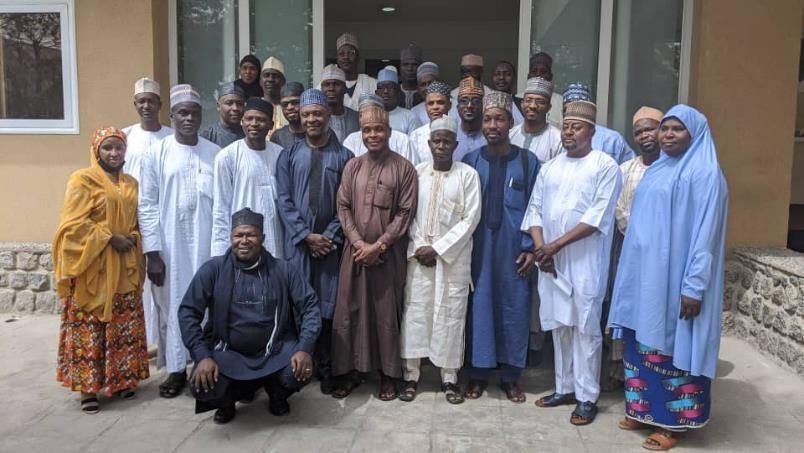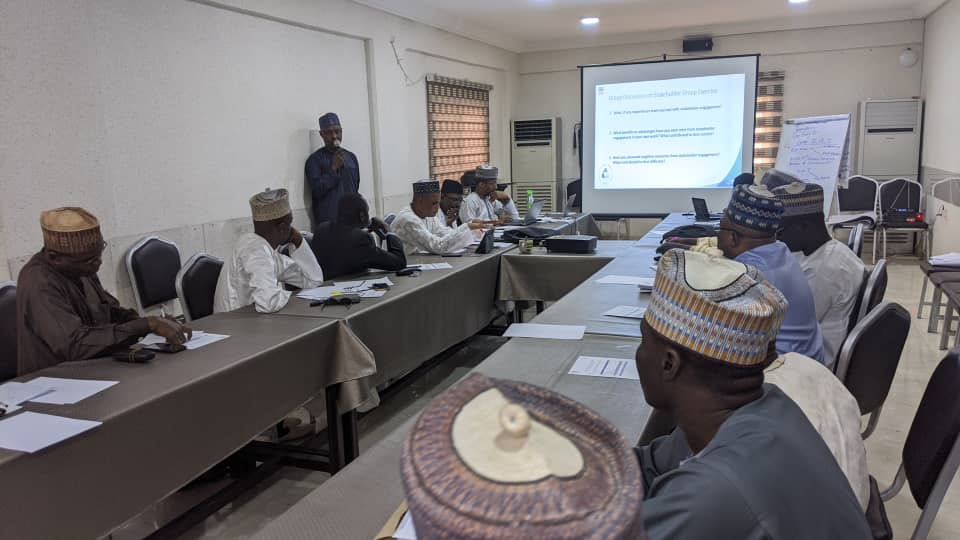Building Capability – Strengthening Kano State Revenue Generating Agencies on Effective Stakeholder Engagement
 |
 |
|
Group photograph of participants at the session |
Dr Bala Magaji, PERL consultant making a presentation at plenary |
Revenue generating Ministries, Departments and Agencies (MDAs) have strategized on improving stakeholder-engagements towards increasing revenue for Kano State.
At a two-day session held on 12th and 13th February, 2020 in Kano, Directors and Deputy Directors of the revenue generating MDAs in Kano State brainstormed and agreed on improving synergy amongst agencies, and on improving consultation with relevant stakeholders to address the challenges facing revenue generation in the state. The Consultant from PERL, Dr Bala Magaji took participants through the possibilities and prospects of Tax Reforms in Kano, stakeholder identification on Internally Generated Revenue (IGR) and a practice exercise on consultation.
Prior to this session, DFID’s Partnership to Engage Reform & Learn (PERL) had provided a trajectory of support to Kano Inland Revenue Service (KIRS), the Kano Geographic Information System (KANGIS) of Kano State Bureau for Land Management and broader citizens groups. These areas of support included peer learning, conducting a business environment assessment, development of an action plan, and formation of a reform support team. The session led to the strengthening of skills of participants to develop strategies on improving the state’s taxpayer database.
According to the KIRS, one way to improve revenue in the state is to improve voluntary compliance by taxpayers. In Kano State, an estimated 10% of the employed population are on public payroll. The PAYE database shows that 40% of taxpayers are public servants and the private sector make up the remaining 60%. This raises concern of compliance from the private sector.
Dr Bala made reference to a comparative analysis conducted by the DFID ENABLE programme in 2012 on the major industrial centres in Nigeria. The findings showed that Kano was one of the states with high tax burden in Nigeria. The higher the tax charges, the higher the cost of compliance and vice versa. The participants were informed that the Kano State House of Assembly had set up a committee to review the State’s Land Charge Law in response to balancing charges. The committee is reviewing the law with appropriate consultation and recommendations of balancing charges on land use.
The Director Revenue of Kano Road Transport Agency (KAROTA) appreciated PERL and KIRS for the session. He expressed his understanding on the power of communication, consultation, and negotiation between KAROTA, KIRS and the Tricycle Unions and Associations.
The Director Government Business, Abdulsalam Abdulkadir, called for an integration and collaboration amongst the agencies. He explained the need for re-strategizing and the development of a framework to guide future engagements.
With the aid of a post-session evaluation tool, participants confirmed that the objectives of the session were met and registered their commitment to draft a strategic plan for effective consultations with stakeholders on improving IGR.